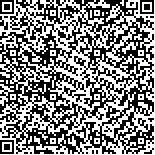| 本文已被:浏览 2061次 下载 1655次 |

码上扫一扫! |
|
|
| 海南岛东部海域生物污损研究 |
|
严涛1,2, 严文侠1,2, 董钰1,2, 王华接1,2, 严岩1,2, 梁冠和1,2, 田兴礼3,4
|
|
1.中国科学院南海海洋研究所 广州;2.510301;3.中国海洋石油南海西部公司 湛江;4.524057
|
|
| 摘要: |
| 于1989年10月-1990年6月,在位于海南岛东部海域的琼东和琼东南海区,分别布设W1(距岸68 n mile)和J2(距岸23 n mile)两个浮标站,进行生物污损的挂板试验。结果表明,该海域人工设施的生物污损主要由热带、亚热带海区常见种类引起,其中水螅、有柄蔓足类和牡蛎为上述两个站位的共同优势种;而无柄蔓足类主要分布在近岸的J2站。表层试板的生物污损程度远高于中、底层试板,且污损生物群落具有明显的垂直分带现象。 |
| 关键词: 南海 海南岛 近海水域 生物污损 浮标 |
| DOI: |
| 分类号: |
| 基金项目:中国科学院重大项目,871804号 |
|
| INVESTIGATION OF BIOFOULING IN OFFSHORE AREAS EAST OF HAINAN ISLAND, THE SOUTH CHINA SEA |
|
YAN Tao,YAN Wen-xia,DONG Yu,WANG Hua-jie,YAN Yan,LIANG Guan-he,TIAN Xing-li
|
|
1.South China Sea Institute of Oceanology, The Chinese Academy of Sciences, Guangzhou, 510301;2.China Offshore Oil Nanhai West Corporation, Zhanjiang, 524057
|
| Abstract: |
| To understand the extent and type of biofouling on artificial structures, two buoy stations, W1 (68n miles offshore) and J2 (23n miles offshore), were established in the offshore areas to the east of Hainan Island, the South China Sea. At each station, iron frames bearing test panels were placed at five depths, i.e. 1, 10, 25, 50 and 100m below the sea surface; the experiments continued for 8 months from October 1989 to June 1990. The results are as follows. (1) A total of 59 species were involved in fouling, in which hydroids, gooseneck barnacles and oysters were the major fouling organisms at both stations. (2) Bryozoans and anemones only occurred at Station J2. Acorn barnacles were mainly found at the same site. (3) With increasing distance from the shoreline, the biomass percentage and species number of acorn barnacles and oysters decreased significantly. (4) Intensive fouling is restricted to the upper 10m, where the test panels were heavily fouled and the maximum biomass was obtained. There was a substantial reduction of biomass and species diversity towards the seabed, particularly at the 100m depth. (5) A conspicuous vertical zonation of fouling communities was observed. Based upon these results, the patterns of biofouling on marine structures in these offshore waters are closely related to the geographical location and the water depth. |
| Key words: South China Sea, Hainan Island, Offshore areas, Biofouling, Buoy |
